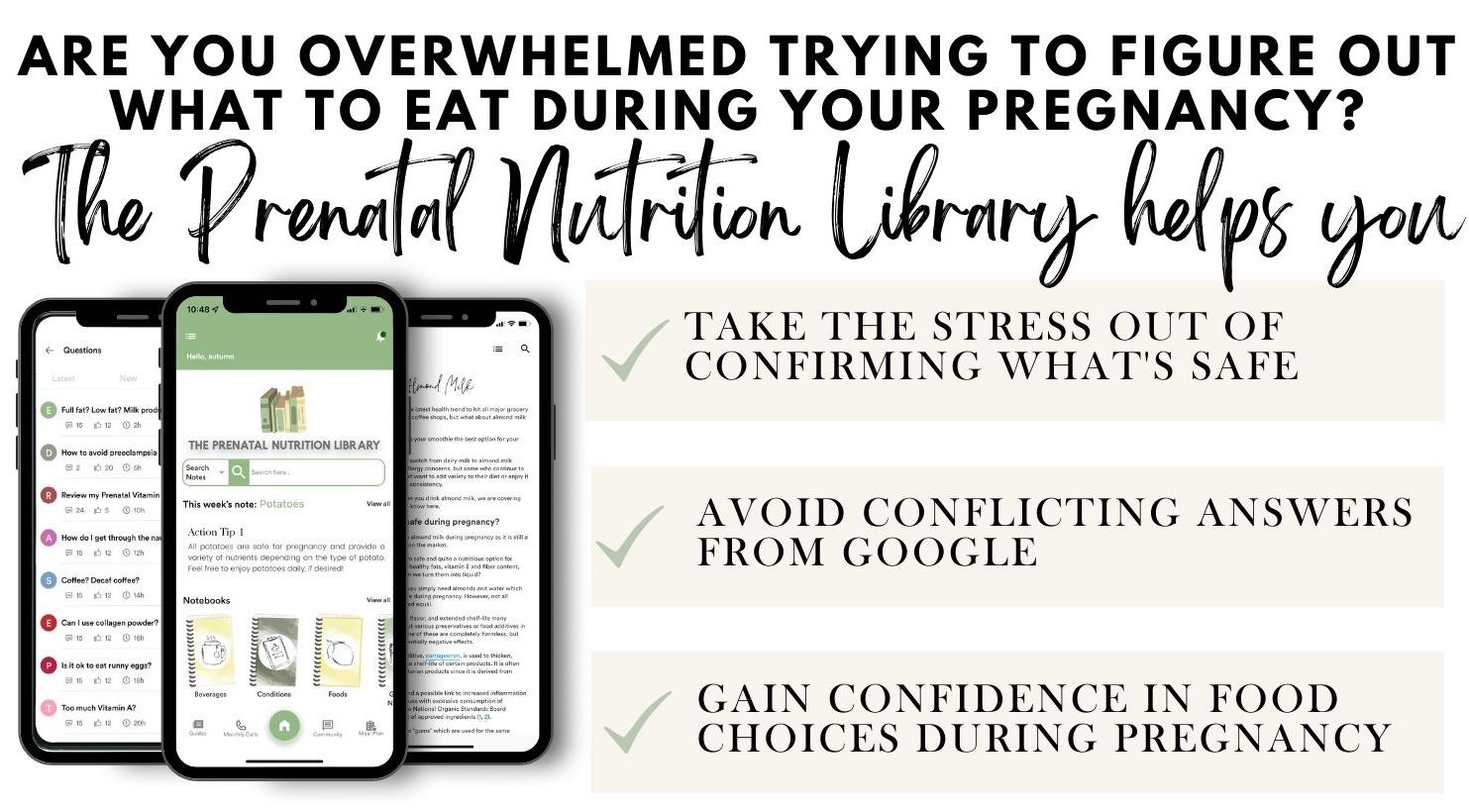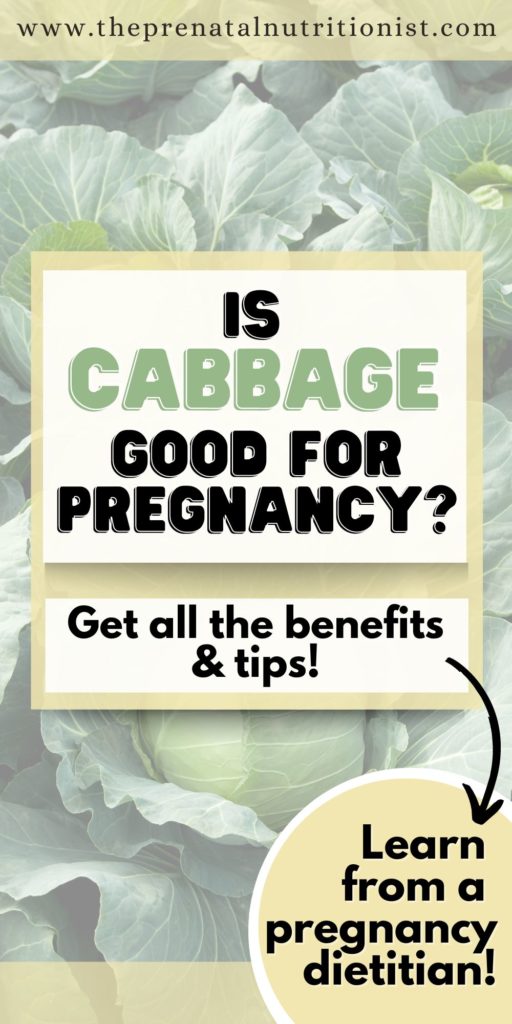
Pregnant women, especially first-time moms-to-be, often find a renewed focus on prioritizing their health. This is usually because they now have two lives to consider. To support a healthier pregnancy journey and growing baby, adding nourishing foods to your pregnancy meal plan is vital. One way of achieving this is by incorporating colorful veggies into your eating plan!
In the veggie world, cabbage probably ranks as one of the lowest-profile veggies. It is a very versatile vegetable, and in most cases, its price is relatively affordable. It’s also a good source of vitamin C, fiber, and vitamin K. Despite these benefits, cabbage is also the focal point of some pregnancy nutrition controversy.
Most agree that cabbage is a highly nutritious food, while others insist it can “harm the body.” Coupled with all the other challenges and myths that are attached to pregnancy nutrition, this is enough to make a mamas-to-be’s head spin. Rest assured, cabbage does not harm you or your baby during pregnancy.
That’s why today I’m dedicating this post to discussing whether (or not) cabbage is a good choice for pregnancy. We’ll explore the potential benefits, the best tips for eating cabbage, and everything in between!
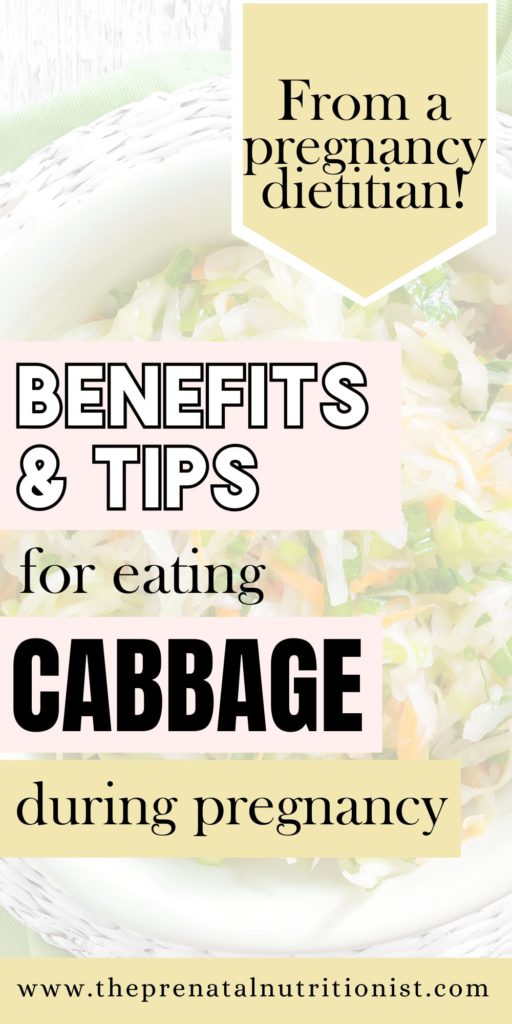
Is Cabbage Good for Pregnancy? Benefits and Tips Explained
In a nutshell, yes! Cruciferous vegetables, such as cabbage, are safe to consume during pregnancy and are very beneficial to an expecting mother. This crispy vegetable is rich in nutrients that are important for pregnancy and the development of your little one.
Food safety is super important, especially during pregnancy. While the overall risk is low, listeria can be a serious food-borne illness if infected during pregnancy. In the most severe cases, it could lead to miscarriages, preterm delivery, or premature birth. Unfortunately, raw veggies have been the culprit of outbreaks of foodborne illness. It’s always important to thoroughly wash produce before consuming. Cooking also greatly reduces the risk of foodborne illness!
It is true that cruciferous vegetables, like cabbage, can contribute to gas, bloating, and other digestive symptoms for some people both during and outside of pregnancy. But here’s the deal: everyone is different, and ways exist to help combat this.
Cabbage may cause gas for a few reasons. It contains a complex sugar called raffinose that the body cannot digest. So, in the large intestine, bacteria break it down, and gas is produced. Additionally, cabbage contains sulfur compounds that can produce gas when broken down in the digestive tract. Cooking cabbage makes it easier to digest and can reduce gas. It’s also important to chew it thoroughly!
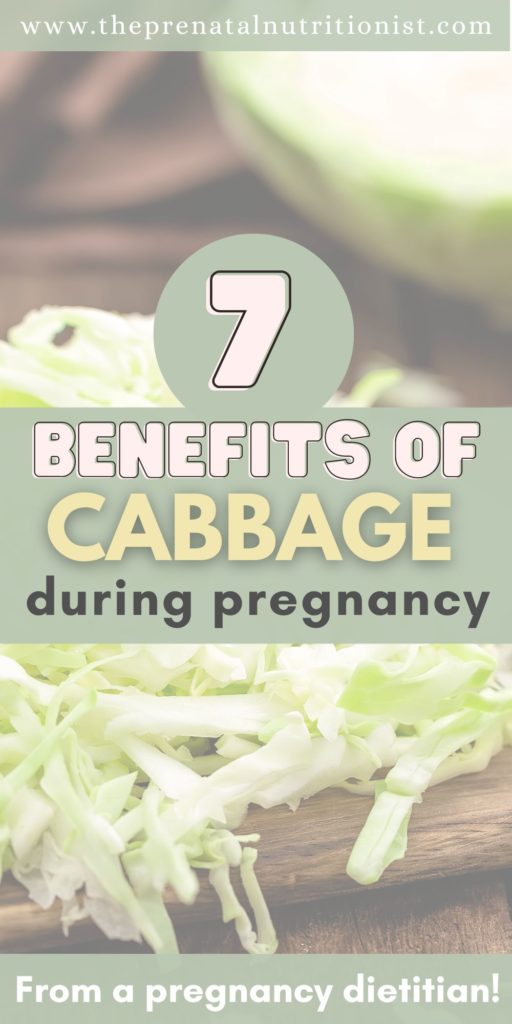
7 Benefits of Cabbage During Pregnancy
Now that we’ve established that cabbage is indeed pregnancy-friendly let’s discuss the many ways this versatile veggie may benefit you and your growing baby:
Benefit #1: Rich in Folate
Cabbage is a good source of folate, a B vitamin that helps prevent your little one from developing neural tube defects. Folate can also assist in cell division and differentiation, making it crucial in prenatal diets.
Benefit #2: High in Fiber
Constipation is a common complaint during pregnancy, especially in the first and third trimesters. The presence of fiber in cabbage can help ease this situation. Eating enough fiber helps promote bowel regularity and combat constipation. Be sure to drink plenty of fluids, too.
Benefit #3: Rich in Vitamin C
Cabbage is a member of the cruciferous family and is particularly rich in vitamin C, a potent antioxidant that supports the body’s immune health. This is particularly advantageous during pregnancy when the immune system is slightly subdued.
Benefit #4: A Good Source of Potassium
Potassium is important for many reasons, including blood pressure regulation. This nutrient lowers blood pressure and may play a similar role in developing preeclampsia. Cabbage is a good source of potassium.
Benefit #5: May Help Lower Inflammation
Because of the aforementioned antioxidants and sulforaphane, cabbage may help reduce inflammation and neutralize free radicals. This can help support overall health and the immune system and may also reduce the risk of preeclampsia.
Benefit #6: Contains Nutrients that Support Skin Health
Pregnancy acne is a real symptom and not an uncommon complaint. No one food’s a cure-all for pregnancy acne. However, the nutrients in cabbage, like vitamin C and small amounts of zinc, are great for the skin during pregnancy.
Benefit #7: Supports Bone Health
Cabbage provides some vitamin K and calcium, which are important for maintaining strong bones and teeth for both the mom and the developing skeletal system of the baby.
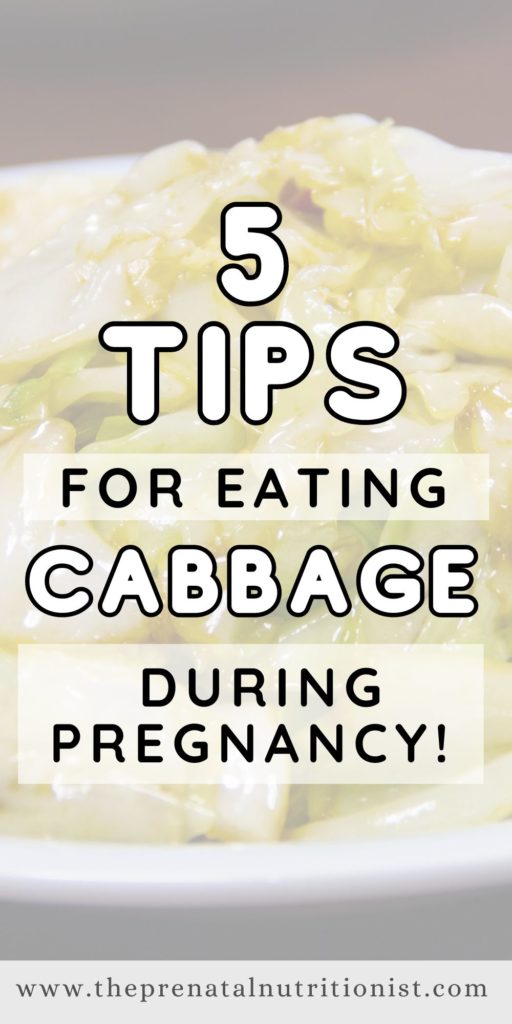
Tips for Eating Cabbage During Pregnancy
In light of the above discussion on the many potential advantages of cabbage for pregnant women, I thought it would also be helpful to offer a guide on incorporating this healthy vegetable into your pregnancy diet. You can also take a look at my pregnancy diet chart for more helpful foods to include during pregnancy.
Try Cooked Cabbage
Although cabbage can be eaten raw, it is also a great vegetable to cook with. There are many varieties of cabbage to include in recipes, from red cabbage to green or even bok choy. Not only will this help soften it, but it will also reduce the chances of developing gas and bloating. Cabbage tastes great steamed, sauteed, and stir-fried.
Don’t Overcook
Yes, you can cook cabbage, but don’t overcook it. Overcooking cabbage can lead to a loss of nutrients, a mushy texture, and an unpleasant smell. Cooking cabbage quickly over high heat, for example, stir-frying on high heat for a few minutes, is one way to retain its texture and nutrients.
Try Different Varieties
There are different types of cabbage, and some of the most common ones include green, red, savoy, and napa. Try different types to identify those suitable for your palate and gut. They are different in taste and crunchiness and slightly vary in nutrient content, too!
Stay Hydrated
Drinking plenty of fluids during pregnancy is important, especially when you increase fiber in your diet. Increased fiber can make constipation worse if not enough fluids are consumed. Fluid needs are individual and depend on factors like heat and your activity level. A good general goal is 100 ounces daily of all fluids- including high-water foods!
Add Spices and Herbs
Some spices and herbs will not only make cabbage even more delicious but also deliver pregnancy benefits. For instance, ginger has the potential to curb nausea and morning sickness, and garlic and turmeric have anti-inflammatory properties.
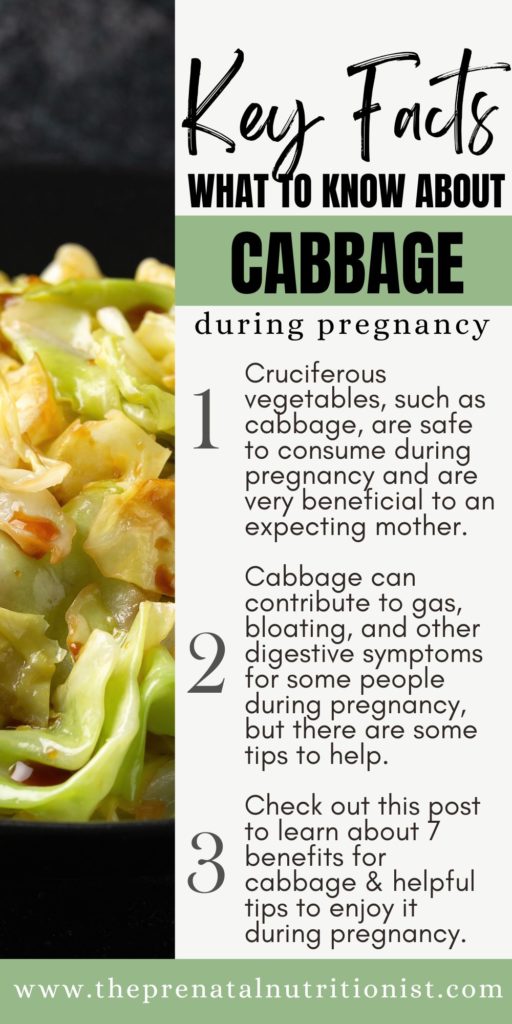
A nourishing diet can support a healthy and harmonious pregnancy journey.
Feeding your body with nourishing foods before, during, and after pregnancy can support a smoother journey. However, navigating food choices for this time period can be super confusing. There are many myths, misinformation, and old wives tales about what to eat, what to avoid, and supplements for preconception and pregnancy.
That is why I have devoted countless hours to creating The Prenatal Nutrition Library (TPNL) app. This resource is your one-stop shop for answers to preconception and pregnancy nutrition questions. We review all your commonly asked ‘Can I take/eat . . .’ questions. It is an easily searchable database and resource for anyone trying to make sense of the dizzying whirlwind of prenatal nutrition.
We also offer trimester-specific meal plans inside TPNL! I created a Free 1-Week Meal Plan for you to have a sneak peek. With it, you can start incorporating nutrient-rich foods to nourish you and your baby effortlessly. These meals are easy to prepare and delicious to nourish you for the wonderful adventure ahead!

